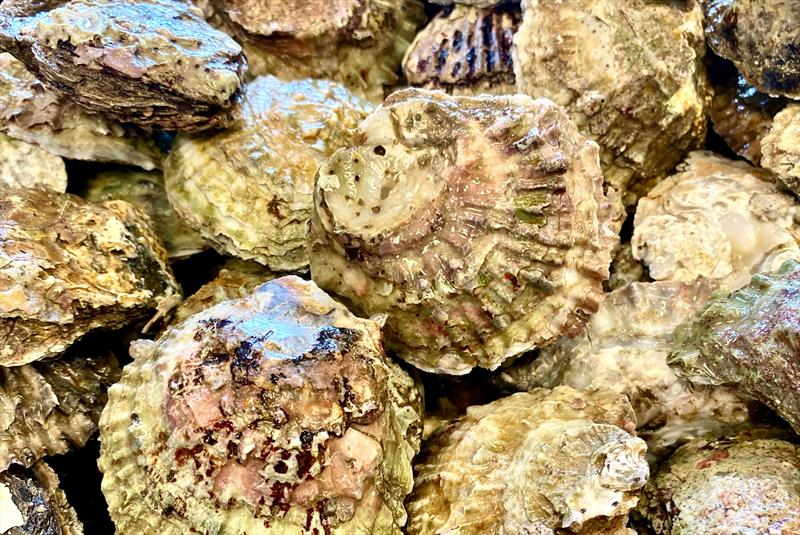
Ten Thousand Native Oysters to be Reintroduced into Solent Harbours
by Bianca Carr 9 Oct 2025 09:21 UTC

European oyster © Final Straw Foundation
This winter, Hampshire-based charity the Final Straw Foundation (FSF) will be installing 10,000 native oysters in marinas across the Solent to study their effects on water quality and help repopulate the waters with this incredible species.
Since the 1800s, the population of the native European flat oyster has been decimated by 95% across Europe, due to overexploitation, pollution and habitat destruction. FSF will be working under the expert guidance of Blue Marine Foundation with an aim to restore populations of these ecosystem engineers across the Solent, by installing 10,000 broodstock oysters in local marinas and harbours. These oysters will reproduce and release larvae into the water, ready for them to settle onto seabed reefs previously installed by Blue Marine.
'It's amazing to see long-term plans falling into place! Handbooks and how-to guides were created from all the lessons learned by the University of Portsmouth and Blue Marine Foundation teams in the hope that the baton could be passed on as we can scale up seabed restoration sites,' Dr. Luke Helmer, Restoration Science Manager at Blue Marine Foundation said of the project.
'It is amazing that two organisations have now done this in the Solent and will keep the larvae flowing, this is critical to populate the seabed sites and establish large seabed populations. With this now taking place across the country, I am excited to see the evidence build and showcase the importance of the native oyster for people and nature.'
An adult native oyster can filter up to 200 litres of water per day. Alongside restoring the seabed population, the team will be studying the effects of native oysters on local water quality; assessing whether oysters are an effective nature-based solution for the water quality issues we are facing in the Solent and beyond.
The Final Straw Foundation will be assisted by a team of dedicated volunteers at all stages of the project, from planning and prepping to installation and monitoring. The charity is grateful to the Institute of Marine Sciences at the University of Portsmouth for allowing the use of their facilities for oyster scrubbing events.
Hannah Cooper, Campaigns Officer at the Final Straw Foundation, enthuses: 'We are showing that real conservation and ecosystem restoration is not out of reach for everyday people. You don't need a massive team or a vast academic background to get stuck in with positive action for our planet.'
Native oysters provide a plethora of important ecosystem services such as removing excess nutrients and preventing algal blooms; stabilising the sediment; and improving biodiversity. This restoration project will see local biodiversity monitored monthly alongside water quality metrics such as pollution indicators and nutrient levels.
The Final Straw Foundation are looking for more volunteers to assist with the project, so check out their website to get involved: finalstrawfoundation.org